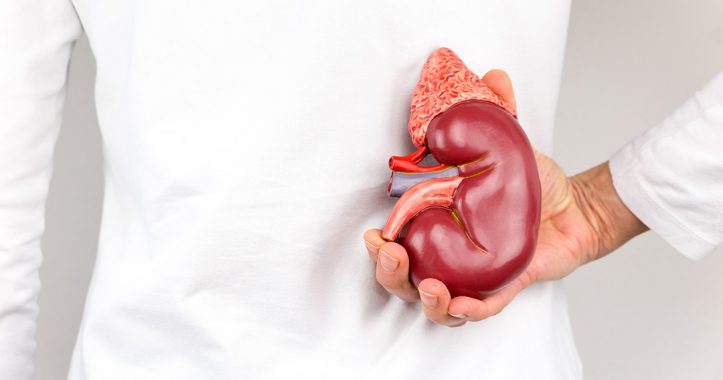Do you know about your kidneys? Your kidneys are vital organs that serve an important function in your body. You only have one functioning kidney on each of your sides of your body. They are each about the same size as your fist. They are below your ribs on both sides of your urinary tract.
Your kidneys perform multiple functions. They need to be able to empty the urinary bladder, store urine, eliminate waste, and filter out impurities. The more functioning parts of your kidneys, the less likely you are to suffer with kidney-related health problems.

When your kidneys aren’t working properly, a dull ache or a pain in your abdomen may indicate that something is wrong. Pain from kidney stones and chronic kidney pain are common. Pain from fever and chills also indicate problems with the kidneys. If you are experiencing a dull ache that radiates, you should visit your doctor for a proper diagnosis of kidney stones.
One symptom of kidney pain is blood in your urine. The blood is usually in a pool, but if it’s dripping it could mean other issues with your kidneys. If your blood is dark blue or dark green in color, you should get it checked out. Your doctor may be able to see where the bleeding is coming from, which will help them to remove some of it or even do surgery to stop the bleeding. Blood in your urine can signal serious health problems, so getting it checked out right away is important.
Kidney pain can also occur if you suffer from high blood pressure. High blood pressure is characterized by a very low count of healthy platelets in the blood. If there are a lot of platelets being made, they start to collect toxins from the body, which then makes the kidneys work harder to eliminate the waste. This can lead to serious kidney disease and kidney failure.
These are just a few of the symptoms that can indicate kidney pain or even high blood pressure. If you are experiencing any of these symptoms, you should definitely get a medical check up. High blood pressure is one of the leading causes of kidney pain and back pain. Taking action now can drastically reduce the effects of these complications in the future. A healthy diet and exercise program can help you avoid these health risks.
Kidney disease, whether you have high blood pressure or not, requires that you watch your diet carefully. You don’t want to eat foods that promote kidney disease. Foods like white flour products, processed meats, and sugar are great for promoting a kidney disease progression. Eating foods that are rich in vitamins and minerals can be beneficial to both preventing and reducing these types of health complications in the future.
Kidney problems are more common in women than men, but the risk for developing chronic kidney disease is the same for everyone. Keeping your kidneys healthy through diet and regular medications are your best line of defense against these health issues. Once you have had one kidney infection, it is important to receive regular blood tests to monitor your kidney function. In order to prevent kidney disease from occurring, you need to think about how you can make positive changes in your lifestyle. Your diet and regular medications are the most important factors for avoiding a chronic kidney disease outcome.
Chronic kidney disease progresses slowly over time. There may be no symptoms or only mild symptoms at first. If you experience any of the following symptoms, you should definitely talk to your doctor about them: nausea, vomiting, lethargy or fatigue, chills, dark urine, blood in the urine, fever, chills, or discomfort in the abdomen. If any of these symptoms persist for longer than 48 hours, you should definitely get medical attention as these could be the early signs of kidney disease. These symptoms can be warning signs of more serious issues, so if you do experience any of these symptoms, talk to your doctor immediately.
Vitamins C and E are important for maintaining the health of your kidneys and help keep your blood pressure in check. When taking vitamin C, ensure that you consume plenty of citrus fruits and include vegetables that are rich in beta-carotene into your daily diet. In addition, drinking lots of water every day can help keep your body hydrated. It can also help keep your kidneys from getting stones and buildup up in them.
To keep your blood pressure in check and help keep your kidneys functioning properly at all times, it’s essential that you drink at least eight glasses of water daily. Also, you need to eat a diet rich in nutrients that will help your body work properly as well. Vegetables, fruits, whole grains, and beans are all excellent sources of nutrients that will give your body everything it needs to function properly. Other foods that will help keep your kidneys’ filtering less blood and keeping red blood cells healthy is fish, almonds, walnuts, soybean sprouts, green tea, and wheat germ.